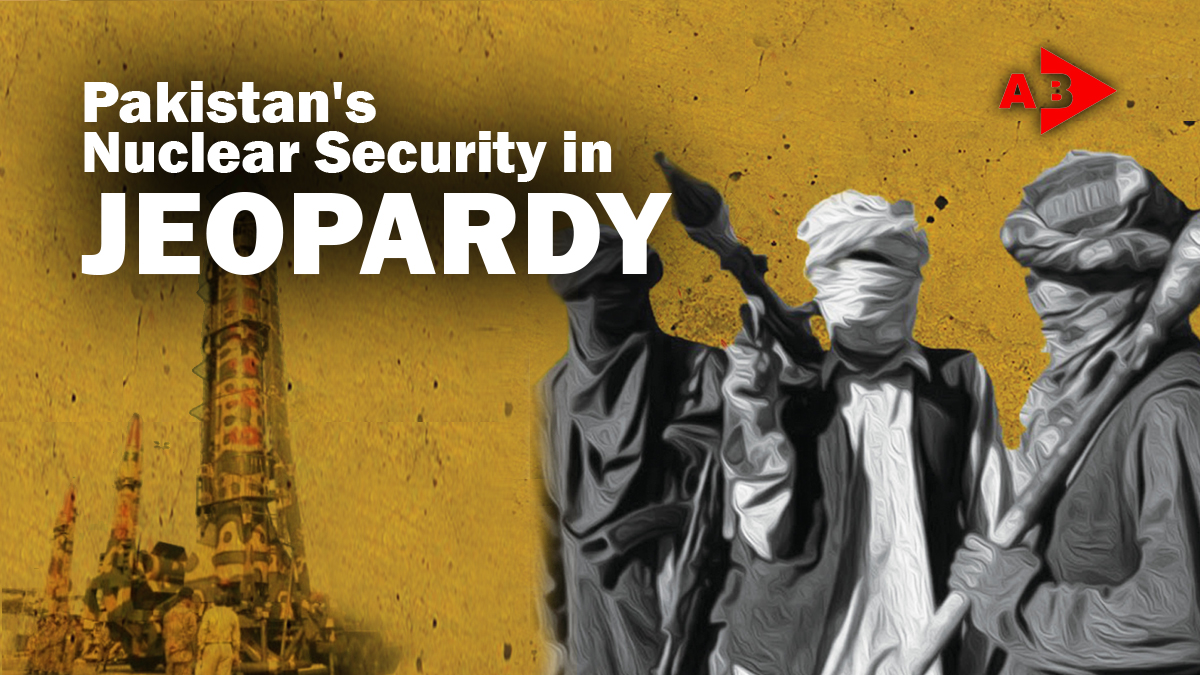
The abduction of 16 nuclear scientists by the Tehrik-e-Taliban Pakistan raises alarms over potential uranium theft and the future of Pakistan’s nuclear program.
AB News, Islamabad: The security of Pakistan’s nuclear program is once again at grave risk following the abduction of 16 nuclear scientists and employees by the Tehrik-e-Taliban Pakistan (TTP) in Khyber Pakhtunkhwa province. The Pakistani army reports that it has successfully rescued 8 of the kidnapped individuals, yet the threat remains palpable as the TTP openly declared its intention to target military installations.
While the army contends that these individuals are ordinary employees, the TTP has released identification cards asserting that they are affiliated with the Pakistan Atomic Energy Commission (PAEC). Further complicating the situation, there are alarming reports suggesting that terrorists may have also managed to loot uranium during the incident.
As a nuclear-armed nation, Pakistan has faced scrutiny regarding the safety of its nuclear assets, and the TTP’s longstanding interest in this domain makes the abduction of these scientists particularly worrisome. Voice of America reports that the TTP managed to execute the kidnapping at gunpoint before setting the victims’ vehicle ablaze and escaping. In a troubling twist, the TTP has issued a video demanding that the army acquiesces to their terms, further escalating tensions.
The current context reveals that Khyber Pakhtunkhwa is now a focal point of TTP activities. Reports of Baloch insurgents overtaking a government office in Balochistan province add another layer of instability. The TTP’s claim of having secured a significant amount of uranium is especially alarming; if true, this presents a severe threat to global security as various terrorist groups reportedly harbor ambitions of constructing dirty bombs using such materials.
All of the kidnapped scientists were employed at Kabul Khil Atomic Energy—the largest uranium mine in Pakistan—where they are now pleading for governmental intervention for their safety. In a dramatic turn, the TTP has stipulated that they will release the nuclear engineers if the Pakistani army ceases its military operations against them.
Recent military efforts by the Pakistani army, including airstrikes targeting TTP strongholds in Afghanistan, have led to significant retaliatory actions, with the Taliban and TTP claiming to have killed multiple Pakistani soldiers. The TTP, often referred to as the Pakistani Taliban, boasts a fighting force of about 6,000 operatives actively engaged along the Afghanistan-Pakistan border.
The TTP is not only focused on a military campaign but also harbors ambitions to supplant the Pakistani government with a regime governed by Sharia law. As stated by the Brookings Institution, the rise of the Taliban government in Afghanistan has emboldened the TTP, raising fears that if Pakistan cannot effectively counter these threats, its nuclear arsenal could fall into the hands of militant groups.
Currently, Pakistan is estimated to possess 170 nuclear weapons, with ambitions to increase this number to 200. This precarious situation has not only elevated internal tensions but also sparked significant concern from the international community, particularly the United States. The consequences of potential destabilization in Pakistan could have far-reaching implications for global security, emphasizing the urgent need for strategic interventions to secure the country’s nuclear assets from extremist elements.


